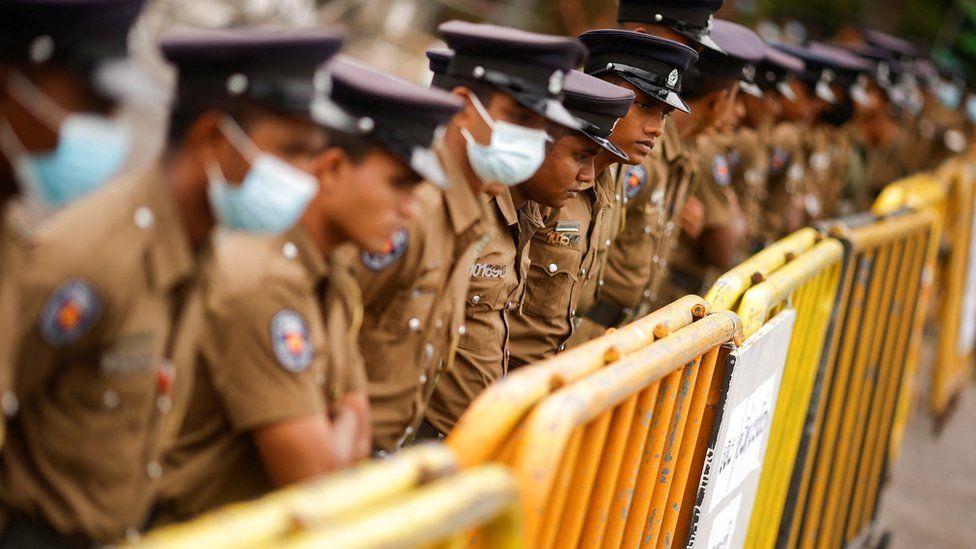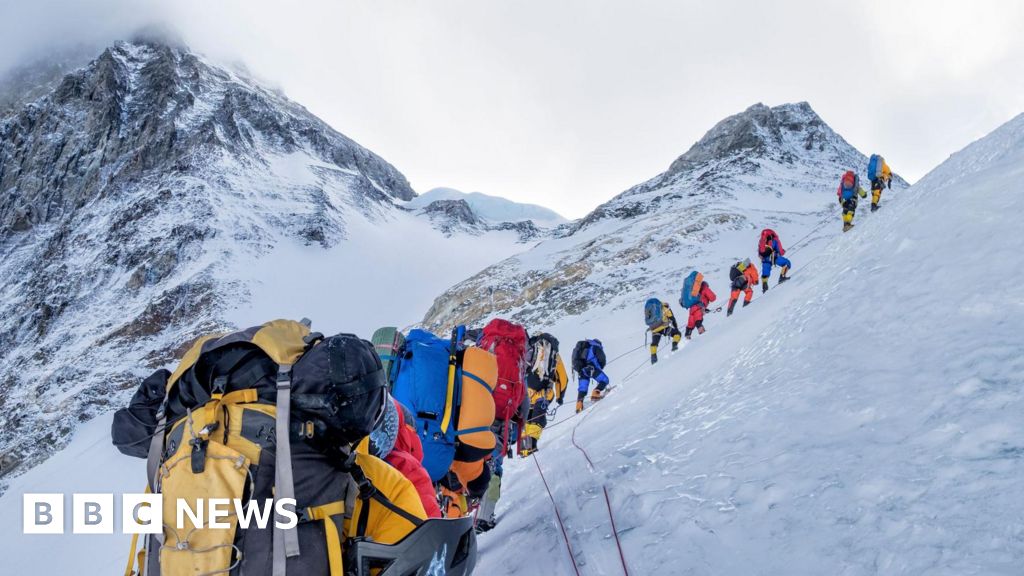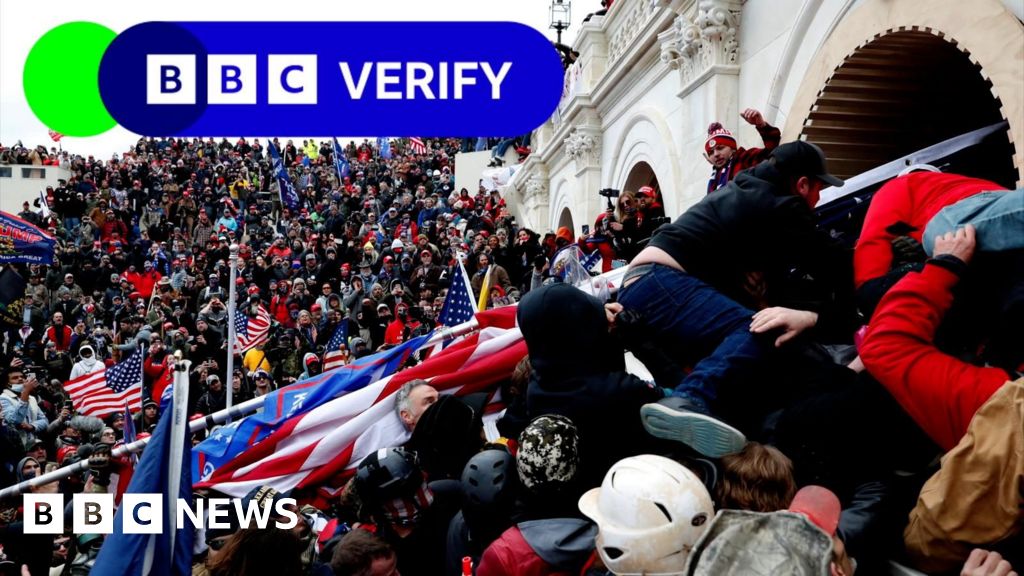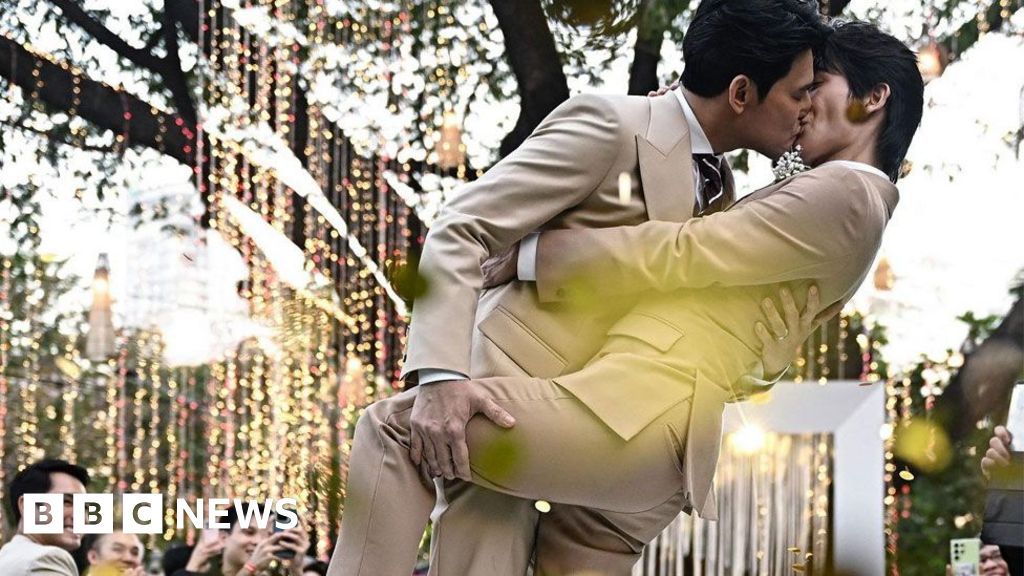ARTICLE AD BOX
By Frances Mao
BBC News
 Image source, Reuters
Image source, Reuters
Barricades were set up in front of parliament ahead of Wednesday's vote
Sri Lanka's MPs are voting for a new president after their former leader fled the country and quit amid protests over the country's economic crisis.
Prime Minister Ranil Wickremesinghe, currently interim leader, has been nominated for the role by the ruling party and is seen as the frontrunner.
But protesters want him to go too after President Gotabaya Rajapaksa resigned.
The PM faces a serious challenge from Dullas Alahapperuma, a dissident ruling party MP backed by the main opposition.
Whoever is elected by parliament will have a mandate to serve out the rest of Mr Rajapaksa's term, which ends in November 2024.
Sri Lanka is effectively bankrupt and facing acute shortages of food, fuel and other basic supplies.
The country needs a stable government to continue stalled negotiations with the International Monetary Fund (IMF) for a bailout package.
Mr Rajapaksa's administration and family, which have ruled the country for nearly two decades, have been blamed for the current crisis.
He fled to the Maldives last week after crowds took over government buildings, demanding political leaders - including Mr Wickremesinghe - step down. Mr Rajapaksa then flew to Singapore and officially resigned late on Thursday.
On Wednesday, police lined barricades outside of parliament during the vote. Meanwhile, a crowd of demonstrators gathered outside the president's secretariat office.
There are fears that the election outcome - particularly if Mr Wickremesinghe wins - could trigger further unrest from protesters.
A total of 225 parliamentarians will cast their vote. If a contender receives more than half of the preferential vote, they win the position outright.
Image source, Getty Images
Image caption,Ranil Wickremesinghe has been nominated by the ruling party but is deeply unpopular with the public
It is a three-way contest between Mr Wickremesinghe, Mr Alahapperuma and Anura Kumara Dissanayake, leader of the left-wing Janatha Vimukti Peramuna party, which commands just three seats in parliament.
Image source, AFP
Image caption,Mr Alahapperuma served in the cabinet of Gotabaya Rajapaksa but later resigned
Mr Alahapperuma is a senior MP from the governing Sri Lanka Podujana Peramuna (SLPP) - the Rajapaksas' party which swept to victory in a landslide in the last elections.
A former minister under that administration, he was among the cabinet members who quit en masse shortly after protests began in April. However, he does not have any top-level governance experience.
Opposition leader Sajith Premadasa was initially expected to run for president, but in a last-minute twist on Tuesday he withdrew from the race, saying it was for the "greater good" of the country.
He added his party - which has about a quarter of the seats in parliament - would work towards Mr Alahapperuma's victory. Reports say he could get the job of prime minister in such an eventuality.
Mr Wickremesinghe, a six-time prime minister who has never served a full term, is perhaps the most contentious of the three candidates.
Image source, BBC/Tessa Wong
Image caption,Sri Lankans have been angered by queues for basics like fuel and food for months
Some protest organisers have vowed to continue demonstrating if he becomes president, with many pointing out that he has close links with the Rajapaksa family.
"He came into power saying he was going to hold everyone accountable, the Rajapaksas even, but he did nothing," said university student Anjalee Wanduragala.
"It's absurd to think that people are going to trust him again."
Sri Lanka: The basics
- Sri Lanka is an island nation off southern India: It won independence from British rule in 1948. Three ethnic groups - Sinhalese, Tamil and Muslim - make up 99% of the country's 22 million population.
- One family of brothers has dominated for years: Mahinda Rajapaksa became a hero among the majority Sinhalese in 2009 when his government defeated Tamil separatist rebels after years of bitter and bloody civil war. His brother Gotabaya, who was defence secretary at the time and later became president, fled the country after mass unrest.
- Presidential powers: The president is the head of state, government and the military in Sri Lanka, but does share a lot of executive responsibilities with the prime minister, who heads up the ruling party in parliament.
- Now an economic crisis has led to fury on the streets: Soaring inflation has meant some foods, medication and fuel are in short supply, there are rolling blackouts and ordinary people have taken to the streets in anger, with many blaming the Rajapaksa family and their government for the situation.

 2 years ago
18
2 years ago
18








 English (US) ·
English (US) ·